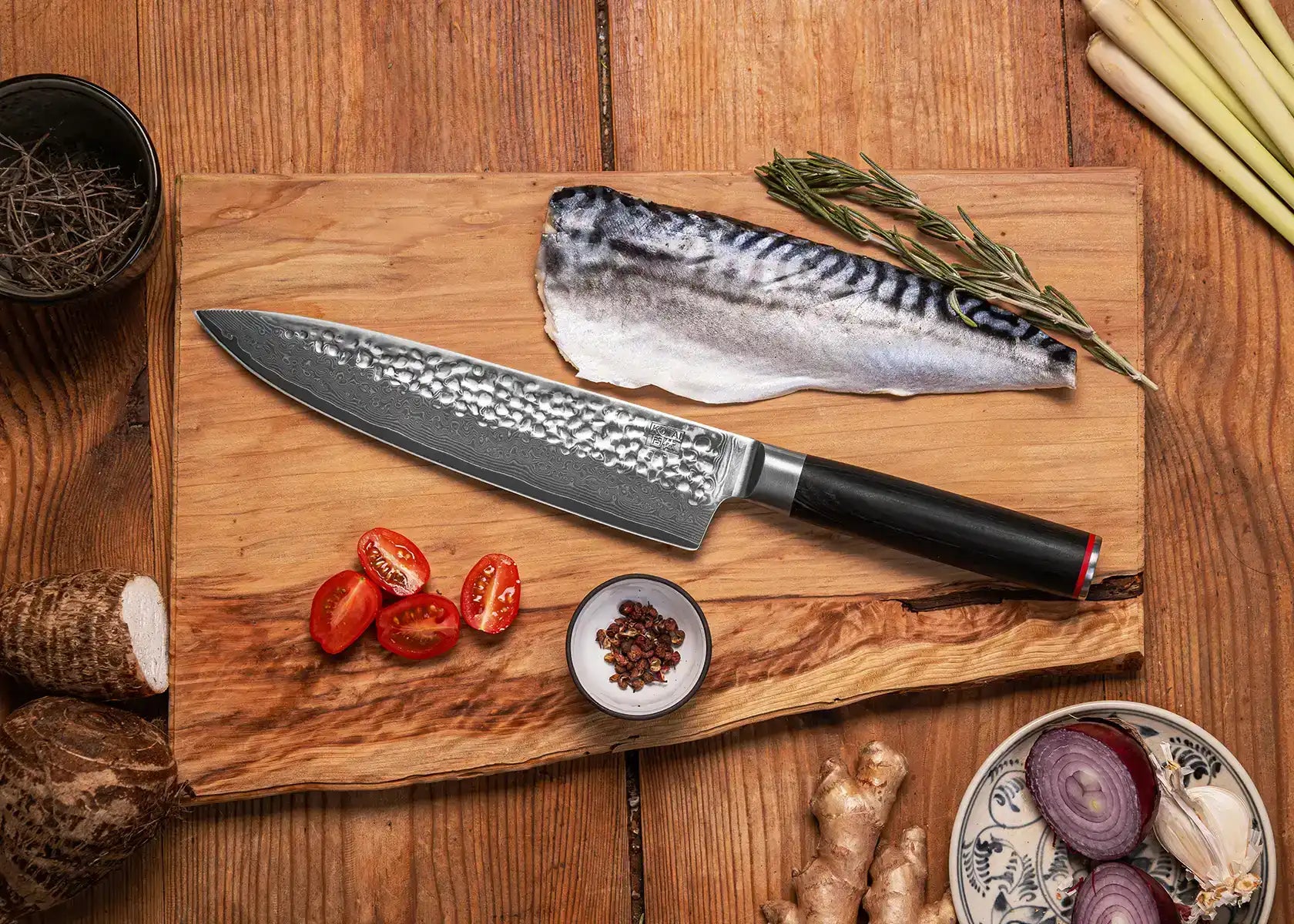In the world of culinary arts, the selection of a knife can have a profound impact on the outcome of a dish. Among the most revered and esteemed tools in a chef's arsenal are chef tested Damascus knives. These knives, known for their unique patterns and unrivaled sharpness, are often considered works of art in themselves. Let's delve into the world of Damascus knives and understand why they are a staple for professional kitchens.

The Legacy of Damascus Steel
Damascus steel is known for its distinctive water-like patterns and high carbon content, which imparts legendary strength and sharpness to the blades. The history of Damascus steel dates back more than a thousand years, with products originating from regions of the Near East. The ancient technique of creating these intricate patterns was considered a secretive art, and many modern knife makers ([learn more here](https://www.medievalware.com/blog/damascus-steel-origin/)) continue to explore and refine these methods.
Why Choose Chef Tested Damascus Knives?
Professional chefs prioritize precision and efficiency, making their knife choice crucial. Among the numerous options available, Damascus knives stand out for several reasons:
Razor Sharpness
One of the key benefits of using Damascus knives is their ability to maintain a sharp edge for extended periods, reducing the need for frequent honing. This level of sharpness ensures that precise cuts are effortless, enhancing food presentation and safety.
Durability and Strength
The layered construction of Damascus steel not only results in beautiful patterns but also significantly enhances durability. Chefs require tools that can withstand heavy use, and the toughness of these knives makes them a reliable choice for even the most demanding kitchens.
Versatile Functionality
Damascus knives are incredibly versatile and can be used for a variety of tasks, from chopping vegetables to slicing meat. Their ability to perform a range of functions makes them indispensable in a professional kitchen setting. Explore how different blades are crafted in this [lightweight Damascus knife guide](https://knives.shop/blogs/my-blog/lightweight-damascus-kitchen-knife).
How to Select the Right Damascus Knife
Selecting the appropriate Damascus knife can be a meticulous process. Chefs must consider factors like balance, weight, and handle comfort. Here are key elements to keep in mind when choosing:
Blade Balance
A well-balanced knife provides controlled cuts and reduces strain. Test the weight distribution along the knifes length to ensure it suits your cutting style.
Handle Comfort
The handle is crucial for comfort and safety. Whether you prefer a traditional wood grip or a modern ergonomic design, spend time ensuring the knife feels natural in your hand. Damascus knives with Micarta handle are noted for combining comfort with durability.
Maintain Regular Care
Proper care is essential for maintaining the longevity of your Damascus knife. Regular cleaning, correct storage, and routine sharpening are key to ensuring these knives remain in pristine condition. Discover more about the care of Damascus knives.

FAQ Section
What makes Damascus knives so special?
The primary allure of Damascus knives is their unmatched sharpness and enduring durability, which are coupled with their beautiful and unique patterning.
How do I sharpen a Damascus knife?
The best method is using a whetstone. Regular honing can maintain edge retention between sharpenings.
Are all Damascus knives the same?
No, variations exist based on manufacturing techniques, the number of layers in the steel, and the forging process used by different artisans.
This article contains affiliate links. We may earn a commission at no extra cost to you.


























